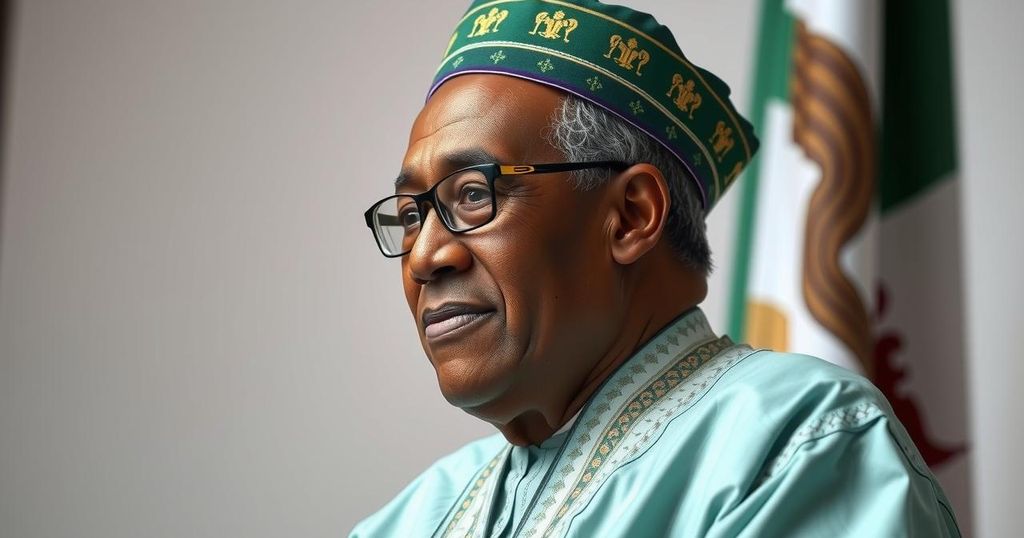President Bola Tinubu conveyed optimism regarding Nigeria’s security and economic transformation at a recent graduation ceremony. He reassured citizens of upcoming improvements despite current challenges and highlighted the need for effective communication regarding tax reforms. Additionally, officials called for accountability among governors in addressing local security issues. Together, they emphasized enhancing coordination among security agencies to achieve national stability.
President Bola Tinubu has expressed optimism about Nigeria’s ongoing transformation, particularly focusing on security and economic recovery. Addressing participants at the graduation ceremony for the Executive Intelligence Management Course 17 at the National Institute for Security Studies, Tinubu acknowledged the severe challenges faced by the nation but affirmed that significant progress is being made. “Things are happening in our country today. People may not like us. They probably will disagree with one or two. But fundamentally, things are changing. And Nigeria will change,” he stated, emphasizing the government’s commitment to the nation’s improvement.
The President highlighted the daunting task of tackling Nigeria’s economic issues, reassuring citizens that “better days are ahead of us” despite current hardships. Tinubu reiterated the administration’s determination to maintain security and stability, warning wrongdoers, both domestically and internationally, of impending justice: “If you are a bad man, whether you are inside Nigeria or outside, you are in trouble. We will go after you. We will bring you to justice.”
Babaginda Aliyu, the former governor of Niger State, criticized the opposition to the recent Tax Reform Bills, stating that many detractors have not thoroughly studied the legislation. He remarked that the government’s communication regarding these bills needs improvement, particularly as policies can disproportionately affect different groups. He emphasized the necessity for transparency about policy changes to promote public understanding, especially amid widespread illiteracy: “People can know that there is no policy that will come to somebody, if the majority comes and one person is disturbed, you can only tell him.”
Aliyu further advocated for stricter penalties, including the death penalty for those who kill security personnel, urging relevant authorities to consider these measures to deter violent attacks against uniformed officers. He criticized the state governors for their handling of security issues, expressing that expecting federal intervention does not absolve them of their responsibilities.
In conjunction with these discussions, Adéọlá Àjàyí, Director-General of the DSS, asserted that cohesive collaboration among security agencies would lead to significant improvements in national security, stating, “Together we can win. CDS and NSA have driven a synergy in a way I have never seen in my career.”
He emphasized that if all security bodies coordinated effectively, the country would soon see a substantial reduction in security challenges, allowing citizens to feel safe once again.
The article discusses President Bola Tinubu’s address regarding Nigeria’s economic and security progress amid ongoing challenges. It highlights the government’s efforts to instill confidence in citizens about the nation’s future through reforms, particularly related to security and tax systems. The piece also includes commentary from other officials, shedding light on the political landscape surrounding these reforms and the importance of effective communication and responsibility among governance structures.
In conclusion, President Tinubu’s remarks reflect a commitment to enhancing Nigeria’s economic health and security landscape, despite acknowledging the significant challenges ahead. The discussions surrounding tax reforms and security challenges underscore the complexities of governance and the necessity for improved communication to facilitate public understanding. Key stakeholders like Babaginda Aliyu and the Director-General of the DSS contribute valuable insights into how collaborative efforts and responsible governance can influence future outcomes positively for the nation.
Original Source: punchng.com






